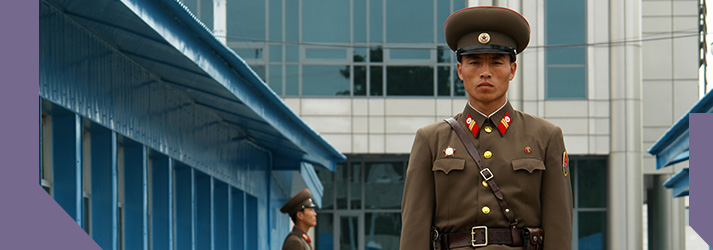November 2017
Despite a fresh display of aggression from North Korea towards Japan, the share prices of large Japanese companies generally rose during November. Japan’s economy grew at an annualised rate of 1.4% during the third quarter. During November, the Government hailed the “remarkable progress” of Prime Minister Shinzo Abe’s economic reforms. Elsewhere, South Korea’s central bank raised its key interest rate from 1.25% to 1.5% during November.
- Subdued private consumption in Japan is being mitigated by stronger export activity
- The OECD highlighted the need for Australia to consider tightening monetary policy
- The BoJ is unlikely to change its policy ahead of a possible change in Governor in April 2018
To view the series of market updates through November, click here
Despite fresh displays of aggression from North Korea towards Japan, the share prices of large Japanese companies generally rose during November. The Nikkei 225 Index climbed by 3.2% over the month, while the Topix Index rose by 1.5%. In comparison, medium-sized companies – represented by the TSE Second Section Index – fell by 2.2%.
“Australia’s economy is moving to a “new narrative”
Japan’s economy grew at an annualised rate of 1.4% during the third quarter. Although private consumption was subdued, dropping by 1.8% year on year, this was mitigated by stronger export activity. During November, the Government hailed the “remarkable progress” of Prime Minister Shinzo Abe’s economic reforms.
Recently published minutes from the BoJ’s September monetary policy meeting showed some dissent between policymakers: one official questioned the prevailing assessment that current monetary policy will be enough to achieve the central bank’s target of 2% inflation. Despite this view the BoJ left its monetary policy stance unchanged.
BoJ Governor Haruhiko Kuroda emphasised that the central bank remains aware of the negative effect that a prolonged period of low interest rates would have on the profits of financial institutions – in particular, the risk that it could dampen banks’ willingness to lend. However, unless inflation picks up sharply, officials are unlikely to implement any major changes in policy ahead of a possible change in Governor next year.
South Korea’s central bank raised its key interest rate from 1.25% to 1.5% during November. The move reflected the country’s strengthening economy, underpinned by acceleration in export activity. Bank of Korea policymakers highlighted the positive effects of the global economic recovery; looking ahead officials expect the country’s rate of consumer price inflation to rise towards its target level. The Kospi Index fell by 1.9% during November.
Australia’s economy is moving to a “new narrative”, according to Governor of the Reserve Bank of Australia (RBA) Dr Philip Lowe, because the winding-down of mining investment moves to its conclusion. Nevertheless, lacklustre wage growth, high levels of household debt, and weak inflation are likely to keep Australia’s key interest rate at its current level of 1.5% for some time. Despite the weak inflationary backdrop, the Organisation for Economic Co-operation & Development (OECD) has highlighted the need for Australia’s central bank to consider tightening action in order to curb growth in household debt and cool the housing market. Over November as a whole, the ASX All Ordinaries Index rose by 1.4%.
A version of this and other market briefings are available to use in our newsletter builder feature. Click here






